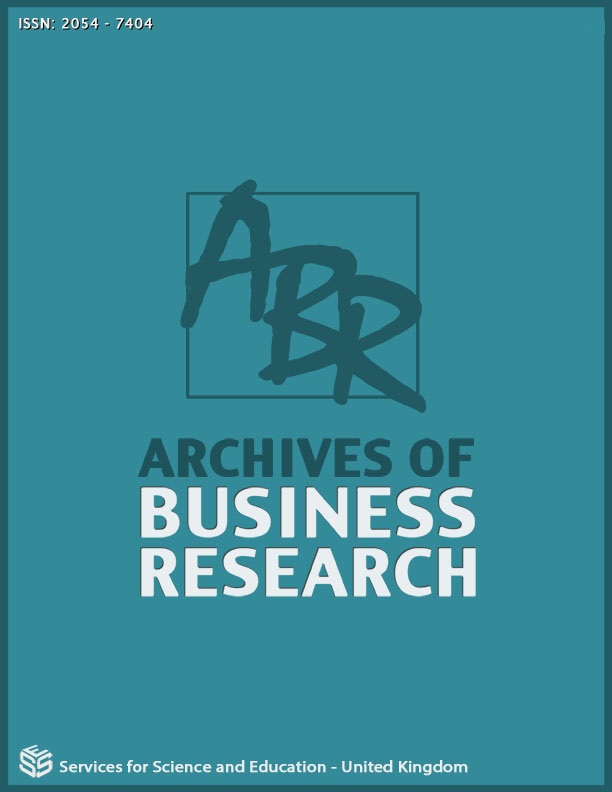Green Consumption Behavior and Norms of Adults: A Case from the Mekong River Delta, Vietnam
DOI:
https://doi.org/10.14738/abr.1011.13472Keywords:
Green consumption, Extended theory of planned behavior (TPB), pro-environmental behaviors, sustainable marketing.Abstract
This research aims at analysing green consumption behaviour of young consumers from Mekong River Delta, Vietnam by applying the extended theory of planned behaviour (TPB). Data was collected from 342 students in Mekong Delta (MKD) via online platforms. The regression results indicated that four factors affecting students' green consumer behaviour were Attitude to green consumption, Subjective norms, Environmental awareness, and Perceived behavioural control. Attitude to green consumption was the most impactful factor, whereas Availability of green products did not significantly affect green consumption behaviour. Based on the findings, some managerial implications would be proposed to raise consumers' awareness of using more environmental-friendly products.
References
Goh, Y.N. and Wahid, N.A., 2015. A review on green purchase behaviour trend of Malaysian consumers. Asian Social Science, 11(2), p.103.
Ottman, J.A., Stafford, E.R. and Hartman, C.L., 2006. Avoiding green marketing myopia: Ways to improve consumer appeal for environmentally preferable products. Environment: science and policy for sustainable development, 48(5), pp.22-36.
Peattie, K. (2010). Green consumption: behavior and norms. Annual review of environment and resources, 35(1), 195-228.
Kim, Y., & Choi, S. M. (2005). Antecedents of green purchase behavior: An examination of collectivism, environmental concern, and PCE. ACR North American Advances.
Ajzen, I., 1991. The theory of planned behaviour. Organizational Behaviour and Human Decision Processes, 50 (2), 179-211.
Ajzen, I. (2011). The theory of planned behaviour: Reactions and reflections. Psychology & health, 26(9), 1113-1127.
Zhu, Q., Li, Y., Geng, Y. and Qi, Y., 2013. Green food consumption intention, behaviors and influencing factors among Chinese consumers. Food Quality and Preference, 28(1), pp.279-286.
Gleim, M.R., Smith, J.S., Andrews, D. and Cronin Jr, J.J., 2013. Against the green: A multi-method examination of the barriers to green consumption. Journal of retailing, 89(1), pp.44-61.
Hair, J. F., Sarstedt, M., Pieper, T. M., & Ringle, C. M. (2012). The use of partial least squares structural equation modeling in strategic management research: a review of past practices and recommendations for future applications. Long range planning, 45(5-6), 320-340.
Rustam, A., Wang, Y., & Zameer, H. (2020). Environmental awareness, firm sustainability exposure and green consumption behaviors. Journal of Cleaner Production, 268, 122016.
Tripathi, A., & Singh, M. P. (2016). Determinants of sustainable/green consumption: a review. International Journal of Environmental Technology and Management, 19(3-4), 316-358.
Sikandar, S. (2021). Impact of Environmental Responsibility and Environmental Knowledge on Green Consumption Intention: A Mediated-Moderation Analysis (Doctoral dissertation, CAPITAL UNIVERSITY).
Wu, S. I., & Chen, J. Y. (2014). A model of green consumption behavior constructed by the theory of planned behavior. International Journal of Marketing Studies, 6(5), 119.
Emekci, S. (2019). Green consumption behaviours of consumers within the scope of TPB. Journal of Consumer Marketing.
Downloads
Published
How to Cite
Issue
Section
License
Copyright (c) 2022 Tran Thi Anh Phuong, Nguyen Mai Nhu Cam

This work is licensed under a Creative Commons Attribution 4.0 International License.






